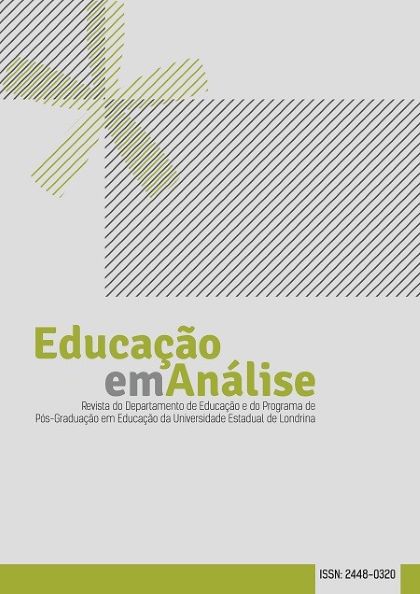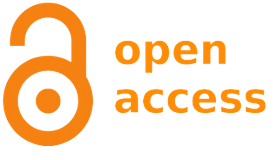Literary education in the classroom: the importance of choosing the book and activities for its exploration
DOI:
https://doi.org/10.5433/1984-7939.2018v3n1p113Keywords:
Literary education, Reading, Children’s Literature, SchoolAbstract
This article discusses literary education and presents the implementation of a didactic proposal for exploring in the classroom a literature book for children, understanding that literary education presupposes the learning of conventions of the literary text and the promotion of a relationship of pleasure between the literary text and the child. This didactic proposal was implemented in the field work, as a process of initiation to the investigative dimension of the professional practice, in 2nd grade class of primary education. The objectives of the didactic proposal were to develop in children a taste for the children’s literature and for reading; to stimulate children’s imagination, creativity, capacity for reflection and critical thinking; to promote a relationship of affection, of pleasure between children and the literary book. Participant observation and field notes were used for the data collection. The exploration of the work, the children’s adherence to the work and to this exploration, their emotional involvement, evident in their responses, allowed us to conclude that literary education, in childhood and in school, can be a reality.Downloads
References
AZEVEDO, F.; BALÇA, A. Educação literária e formação de leitores. In: AZEVEDO, F.; BALÇA, A. (Org.). Leitura e Educação Literária. Lisboa: Pactor, 2016.
BALÇA, A.; AZEVEDO, F. Pensar a cidadania hoje através da educação literária. In: AZEVEDO, F.; BALÇA, A. (Org.). Leitura e Educação Literária. Lisboa: Pactor, 2016. p. 121-132.
BALÇA, A.; AZEVEDO, F. Educação literária em Portugal: os documentos oficiais, a voz e as práticas dos docentes. Revista Linhas, Florianópolis, v. 18, n. 37, p. 131-153, maio/ago. 2017.
BALÇA, A.; COSTA, P. Leitura e educação literária: da viagem possível às restrições do mapa. Ensino Em Re-Vista, Uberlândia, v. 24, n. 1, p. 201-220, jan./jun. 2017.
BALÇA, A.; PIRES, M. N. O ensino da leitura literária na escola, em Portugal: do discurso oficial às práticas. Nuances: Estudos sobre Educação, Presidente Prudente, v. 21, n. 22, p. 93-105, jan./abr. 2012.
BALLESTEROS, X.; OLMOS, R. Tio Lobo. Matosinhos: Kalandraka, 2010.
BENTO, I.; BALÇA, A. Educação literária: um estudo no pré-escolar e no 1.º ciclo do ensino básico. Cadernos de Letras da UFF, Niterói, v. 26, n. 52, p. 81-100, jan./jun. 2016.
BUESCU, H. C.; MORAIS, J.; ROCHA, M. R.; MAGALHÃES, V. F. Programa e metas curriculares de português do ensino básico. Lisboa: Ministério da Educação e Ciência, 2015.
CHARRÉU, L. Arte visual contemporânea, ilustração e literatura para a infância: fazendo conexões entre mundos criativos. Revista Digital do Laboratório de Artes Visuais, Santa Maria, n. 9, p. 1-20, set./mar. 2012.
COSTA, P. Algumas notas sobre o discurso oficial para o Português: as Metas Curriculares e a educação literária. Nuances: Estudos sobre Educação, Presidente Prudente, v. 26, n. 3, p. 17-33, set./dez. 2015.
JUNÇA, M. Educação literária e contadores de histórias: um testemunho na primeira pessoa. In: AZEVEDO, F.; BALÇA, A. (Org.). Leitura e Educação Literária. Lisboa: Pactor, 2016. p. 113-120.
MENDOZA, A. La educación literaria: bases para la formación de la competencia lectoliteraria. Málaga: Ediciones Aljibe, 2004.
ROIG-RECHOU, B. A. Educación literaria e histórias literarias. In: CORRAL, E. (Coord.). A mi dizen quantos amigos ey. Homenaxe ao professor Xosé Luís Couceiro. Santiago de Compostela: Universidade de Santiago de Compostela, 2009.
SANTOS, T. C. A ilustração do livro de literatura infantil: leitores na infância. Marília: UNESP, s/d.
VIANA, F. L.; RIBEIRO, I. S.; FERNANDES, I.; FERREIRA, A.; LEITÃO, C.; GOMES, S.; PEREIRA, L. O ensino da compreensão leitora: da teoria à prática pedagógica. Coimbra: Edições Almedina, 2010.
YOPP, H.; YOPP, R. Literature-based reading activities. 4. ed. Boston: Pearson, 2006.
Downloads
Published
How to Cite
Issue
Section
License
The journal reserves the right to make normative, orthographic and grammatical changes in the originals, with the aim of maintaining the cultured standard of the language and the credibility of the vehicle. It will, however, respect the authors' writing style. Alterations, corrections, or suggestions of a conceptual nature will be sent to the authors when necessary. In these cases, the articles, after being adequate, should be submitted to a new appreciation.









